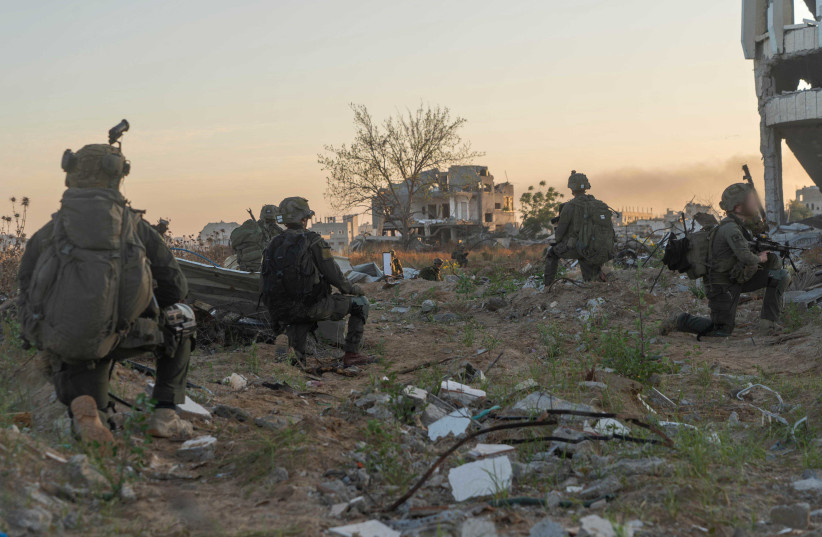Every Israeli headline, along with important political statements, are picked up by regional media, including pro-Iranian ones like Al-Mayadeen, as well as media in the UAE like Al-Ain.
The interest in Israel’s media landscape, along with domestic political discussions about what may come next on the Gaza and Lebanon fronts, are of intense interest to the region. This is partly due to Israel’s democratic nature, which allows it to produce more dialogue than many other regional countries, but also because many of these countries have an interest in what may come next.
As the war in Gaza stretches on and as Hezbollah continues its daily rocket, missile, and drone attacks, many questions arise as to what may come next.
For instance, a Ynet report suggested that Israel may be entering a war of attrition with Hezbollah. The author noted how Israel must make strategic decisions soon, but that the hurdles it faces are difficult because the IDF is tied up fighting in Gaza, and therefore fighting a war on two fronts. These remarks were picked up by Al-Ain.
It is a bit of a circular path because Israeli media itself relies heavily on what is being reported about it in regional media. For instance, the Ynet piece quoted Hezbollah leader Hassan Nasrallah’s remarks, which had been reported in the Lebanese Al-Akhbar newspaper, which is closely associated with Hezbollah.

“You have two options. Either accept Hamas’s proposal for a deal and leave Gaza, thus admitting a major defeat, or continue the war of attrition that will defeat Israel and plunge it into the abyss,” Nasrallah said.
Middle Eastern partners seek to understand Israel's plans
The reports are also focused on recent comments by Finance Minister and Religious Zionist Party chairman Bezalel Smotrich, where he called on the government to make a decision about the North and give an ultimatum to Hezbollah, to force them to withdraw north of the Litani River.
What Al-Ain media wonders – and this probably reflects wider questions in the Gulf as a whole – is whether Israel’s right-wing politicians will be able to procure a plan for the North.
Another focus in the reporting is the Gaza front. Recent comments by former IDF Head of military intelligence Maj.-Gen. (res.) Amos Yadlin were quoted extensively in an Al-Ain report, which focused on the question of Israel’s goals in the war. Clearly then, what interests the Gulf states – including Israel’s partners in the UAE and Bahrain – is whether Jerusalem will come up with a clear plan for Gaza, whether Hamas will actually be defeated, and whether Israel will emerge from this stronger or weaker.
For these countries, who are allied with Israel through the Abraham Accords, “weaker” would not be promising; a weak Israel would not be able to bring stability to the region or deter enemies, and it would mean that its friends would hedge bets by working with Iran, Russia, China or others. Those are the countries that also back Hamas, so a cycle of instability is sure to follow.
Dr. Avner Golov, a former Senior Director for Foreign Policy at the National Security Council, was also quoted by the Al-Ain report in comments on how China and Russia have backed Hamas since their murderous attack.
Everyone in the region is watching the developments in Israel closely, as well as Israeli politics and other pertinent issues. Al-Mayadeen recently ran an article about US Secretary of State Antony Blinken arguing that Israel’s operations in Rafah would not eliminate Hamas. Clearly, this is what the pro-Iran axis would like to think, so they are repeating the claims to make it seem accurate.
The picture that emerges is of intense interest at this point regarding what Israel may do next. This interest takes place both among Israel’s friends in the region as well as its adversaries.
